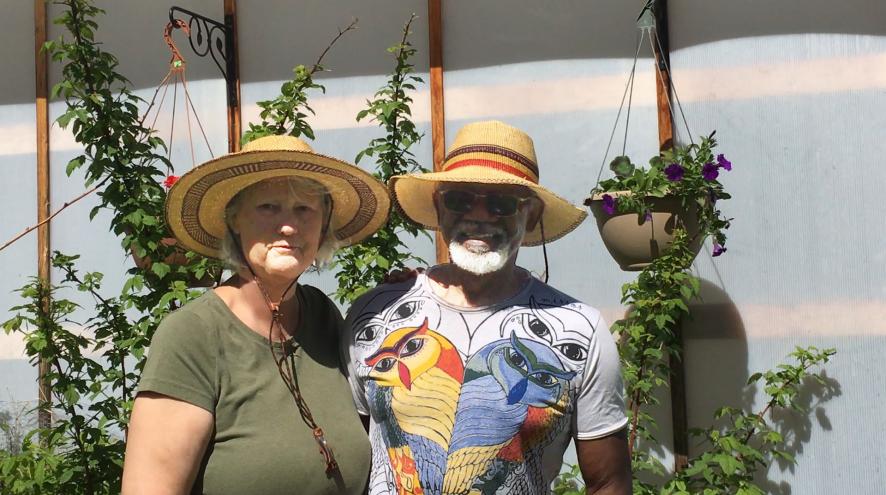Dementia in the days of COVID-19: Granville & Birgit's story
During this time of increased isolation due to the COVID-19 pandemic, many people living with dementia and the people who care for them are disconnected from support networks and facing unexpected challenges. It is the Alzheimer Society of B.C.’s mission to ensure that no one walks alone on the dementia journey. Now and in the coming weeks, caregivers and people living with dementia will share their everyday challenges and successes as a part of our Dementia in the days of COVID-19 series.

Granville and Birgit’s story: Coping through creativity
A hundred kilometers outside of Prince George, a Vietnam War vet is at home adapting the lyrics of a military medic cadence to reflect his experience of living with dementia in the days of COVID-19. Granville Johnson went into the pandemic with three diagnoses that brought significant stress and anxiety into his life: Alzheimer’s disease, PTSD and depression/anxiety that had flared up just prior to the COVID-19 outbreak. While almost no one was prepared for the pandemic, Granville already had a coping mechanism he was ready to deploy: music.
“All those things created an internal storm,” Granville says. “So now I’m doing what I’ve always done, which is stay home and make music. I’m safe here.”
Granville lives in the remote community of Sinclair Mills with his wife Birgit. As retired people used to a bit of seclusion, their lives haven’t been as directly impacted as some others, but they have felt the effects of the pandemic all the same. When a routine trip to the city and an encounter with people not following physical distancing guidelines sparked a week of paranoia for Granville, he decided to stop going out altogether. He misses in-person activities and Birgit misses her caregiver support group with the Alzheimer Society of B.C.
To cope with the loss of their in-person activities, Birgit is reaching out to friends near and far on the phone, and Granville has thrown himself into his music.
“Writing has become a wonderful well of inspiration; so much so that’s it’s hard to keep up with,” he says. “Birgit knows there’s kind of a manic component to it. I return to the place I was before the world discovered my music. It’s nice because I do my best playing here. I’m working on acceptance and it feels regenerative for me.”
Granville and Birgit also sell fair trade African baskets and djembe hand drums through markets and music festivals, where Granville would perform, teach workshops and participate in drum circles each summer. The couple know they’ll feel the effects of physical distancing more deeply as they move through the season so central to their lifestyle with all the events on their calendar cancelled. As that time approaches, Granville is shifting his focus inward. He’s currently converting their spare bedroom into a recording studio and writing down the new songs as quickly as he can.
“It’s interesting that I’m doing the best playing of my career in a place when I can’t share it,” Granville says. “Playing is the heart and soul of my consciousness. When I’m there, dementia does not affect me.”
If you have questions or concerns about dementia or caring for someone living with dementia, call the First Link® Dementia Helpline. Monday to Friday from 9 a.m. until 8 p.m. in English (1-800-936-6033) and from 9 a.m. until 4 p.m. in Cantonese or Mandarin (1-833-674-5007) and Punjabi (1-833-674-5003).
To explore the rest of our "Dementia in the days of COVID-19" stories, visit: alzbc.org/COVID-stories.
